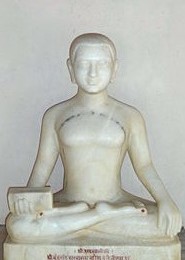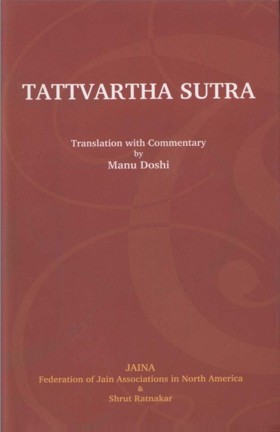06.05 Sakashāyākashāyayoh Sāmparāyikeryāpathayoh
Audio: Sanskrit: सकषायाकषाययो: साम्परायिकेर्यापथयो: ।
Hindi: कषायसहित और कषायरहित आत्मा का योग अनुक्रम से साम्परायिक कर्म और ईर्यापथ कर्म का बन्ध हेतु होता है।
06.05
English: Anger, pride, deception and greed are the four main types of defilement, which are known as Kashāys. When one undertakes an activity under the influence of such defilement, the purity of soul is affected. Karma acquired thereby is relatively stronger and stays longer. That is known as Sāmparāyik Āsrav. Karma resulting from innocent exercising of one's faculties is not that strong and does not stay long. That is known as Iryāpathik Āsrav. The difference between the two can be explained by an illustration. If a mud ball is flung at a wall, the ball would stick to it. Even after it is removed from the place, the spot would remain on the wall. That can be erased by cleaning with water or other suitable liquid. Similarly Karma resulting from Sāmparayik Āsrav is strong and can be eradicated with much effort.
If, however, a rubber ball is flung at the wall, it would immediately come back without any impact or with very little impact on the wall. Similarly Karma resulting from Iryāpathik Āsrav is weak and has a momentary impact. It is therefore said that the Karma resulting from an activity undertaken with a detached mind is acquired at one moment, is experienced at the second and is stripped off at the third. Kāusagga, which is undertaken after undergoing any movement, is therefore termed as Iryāpathīk Kāusagga.
 Acharya Umaswati
Acharya Umaswati
